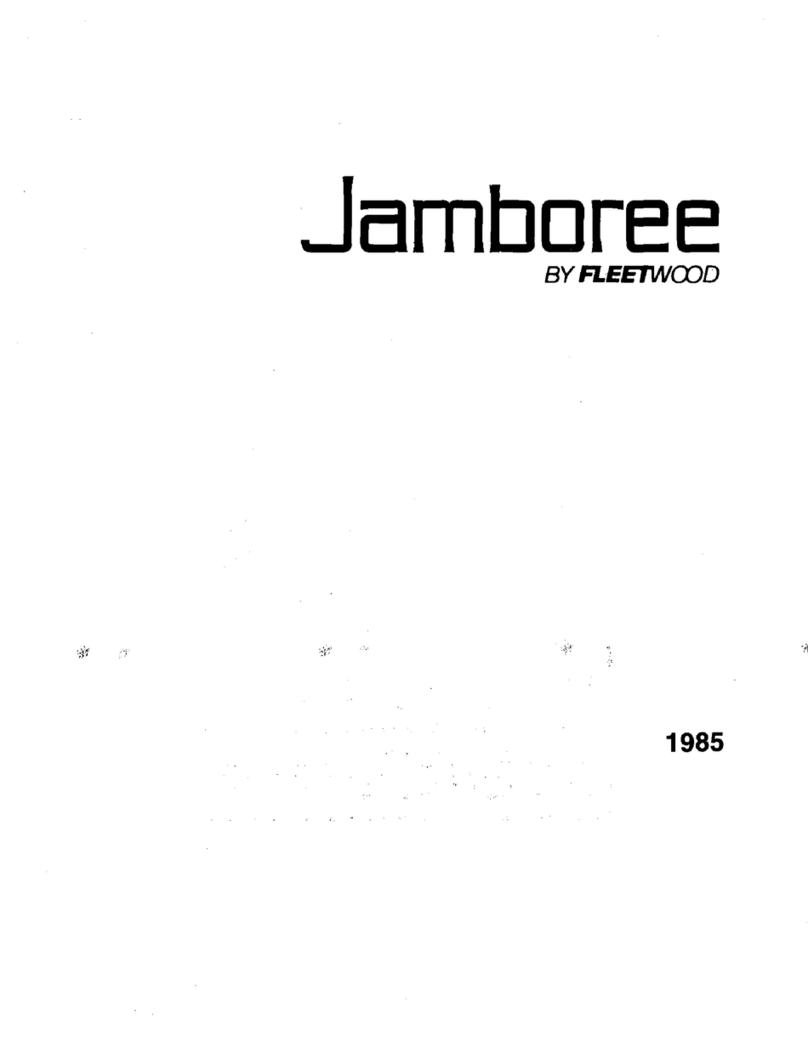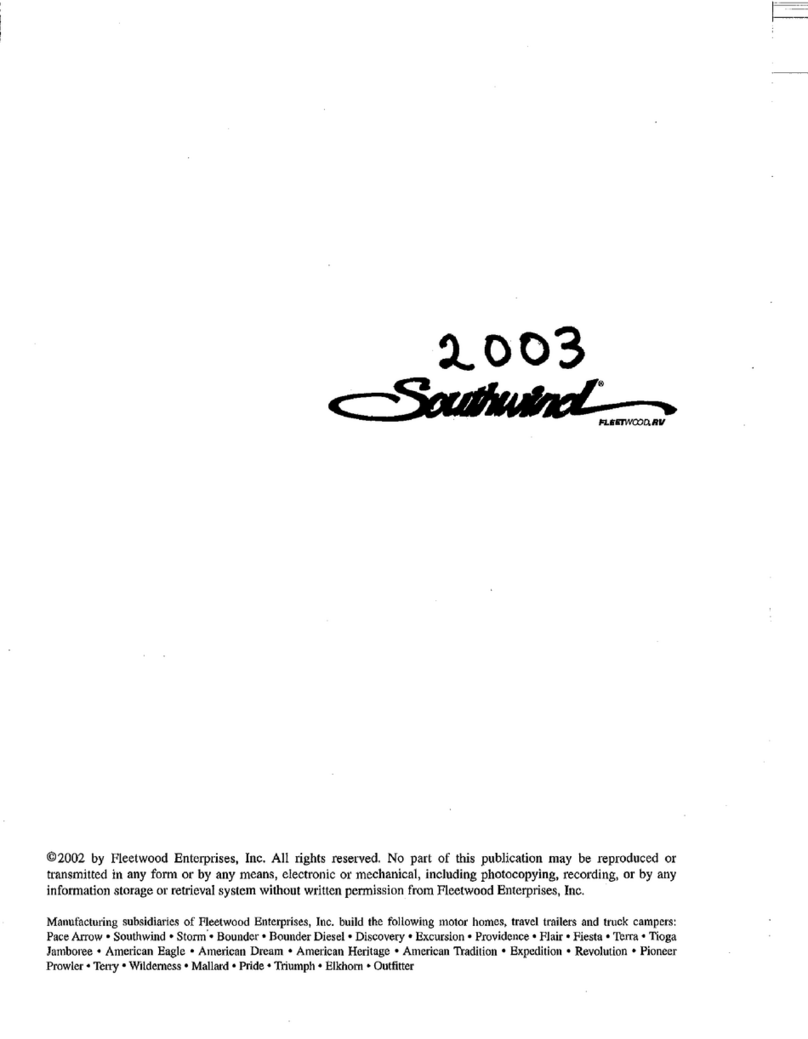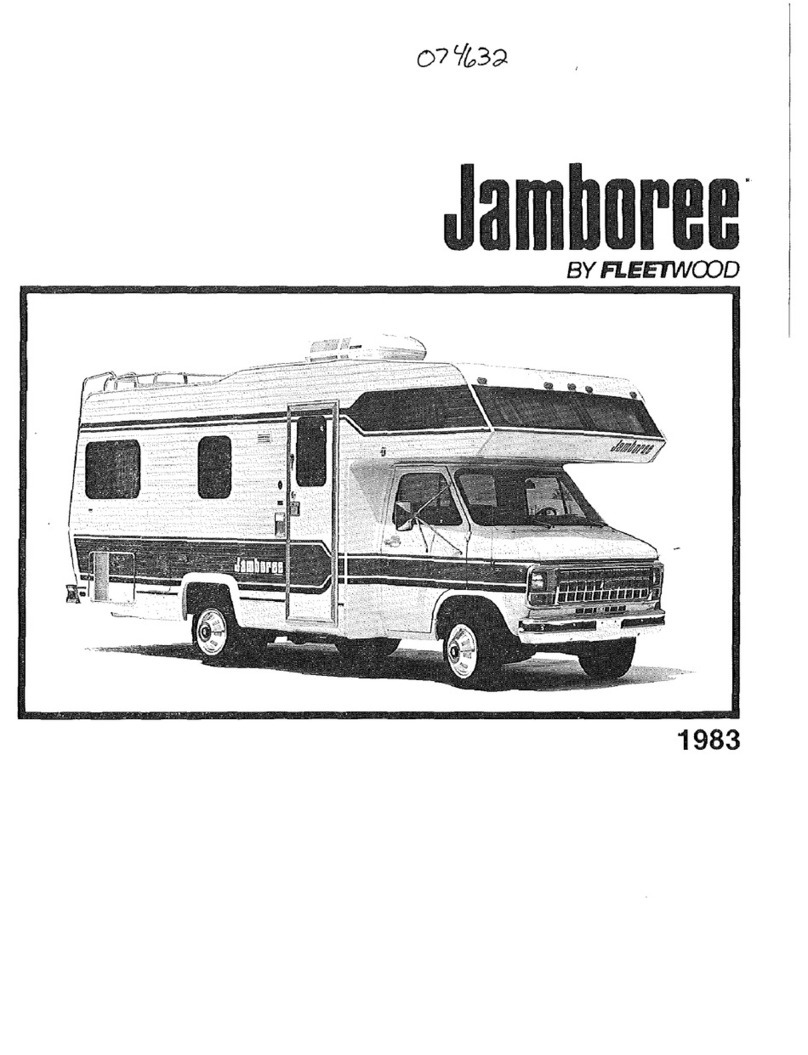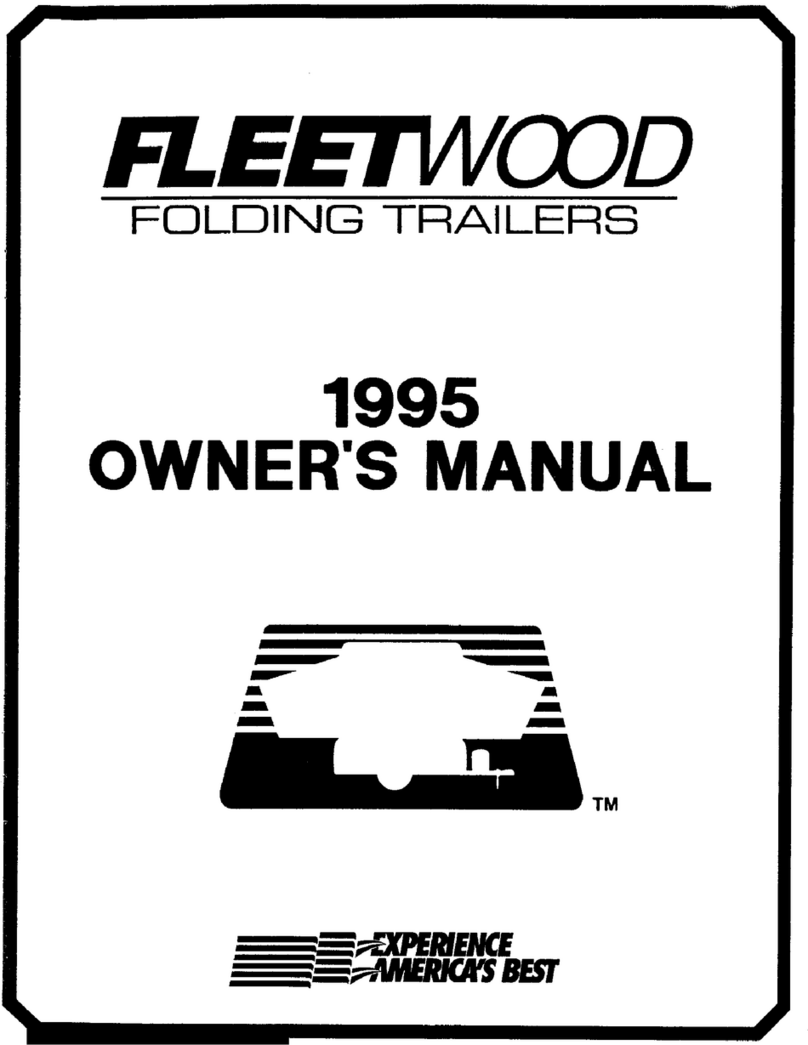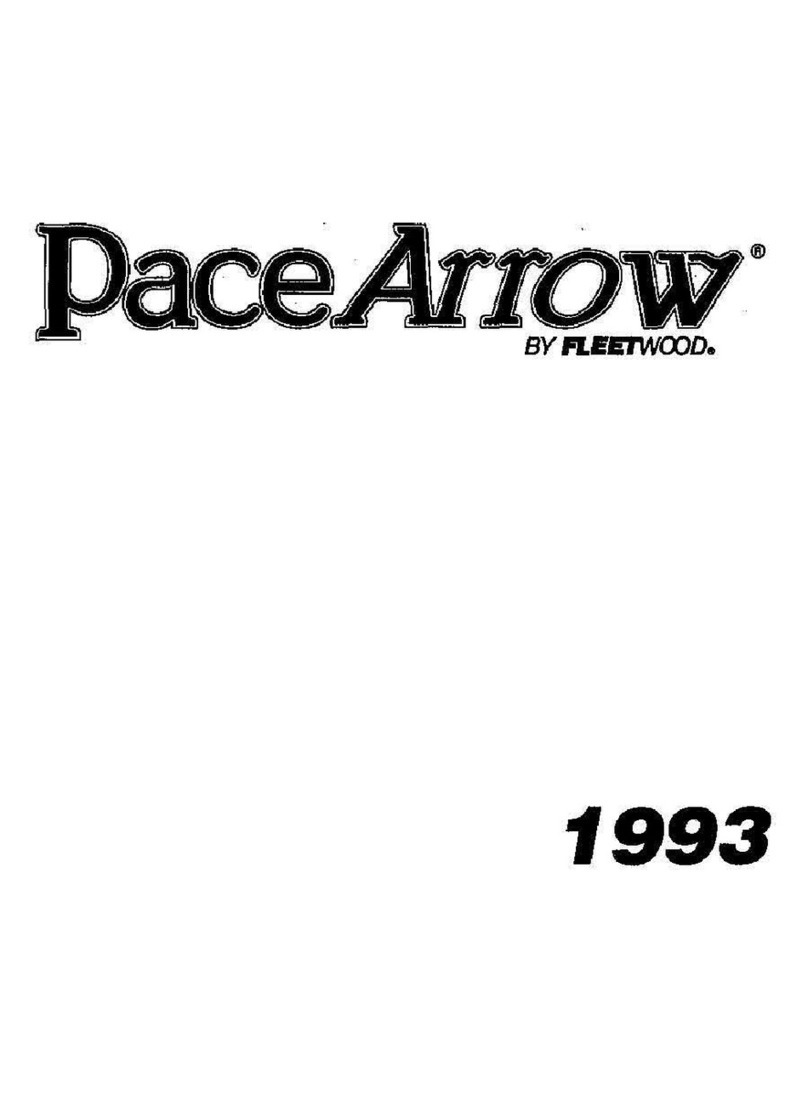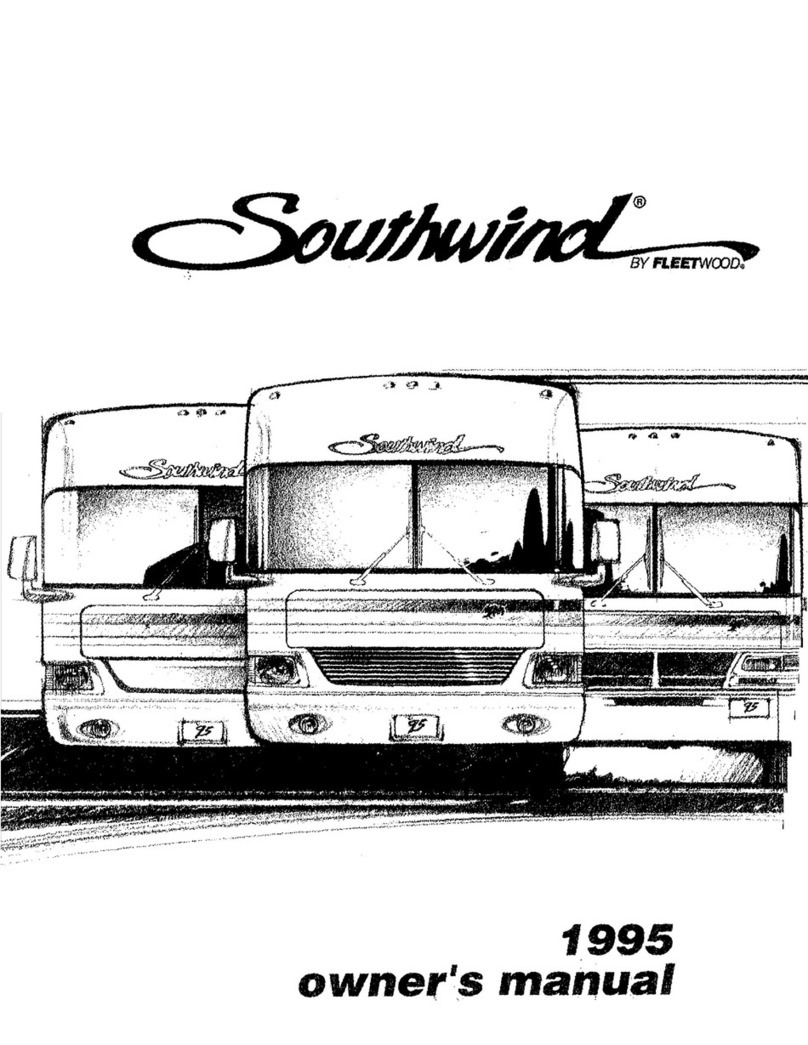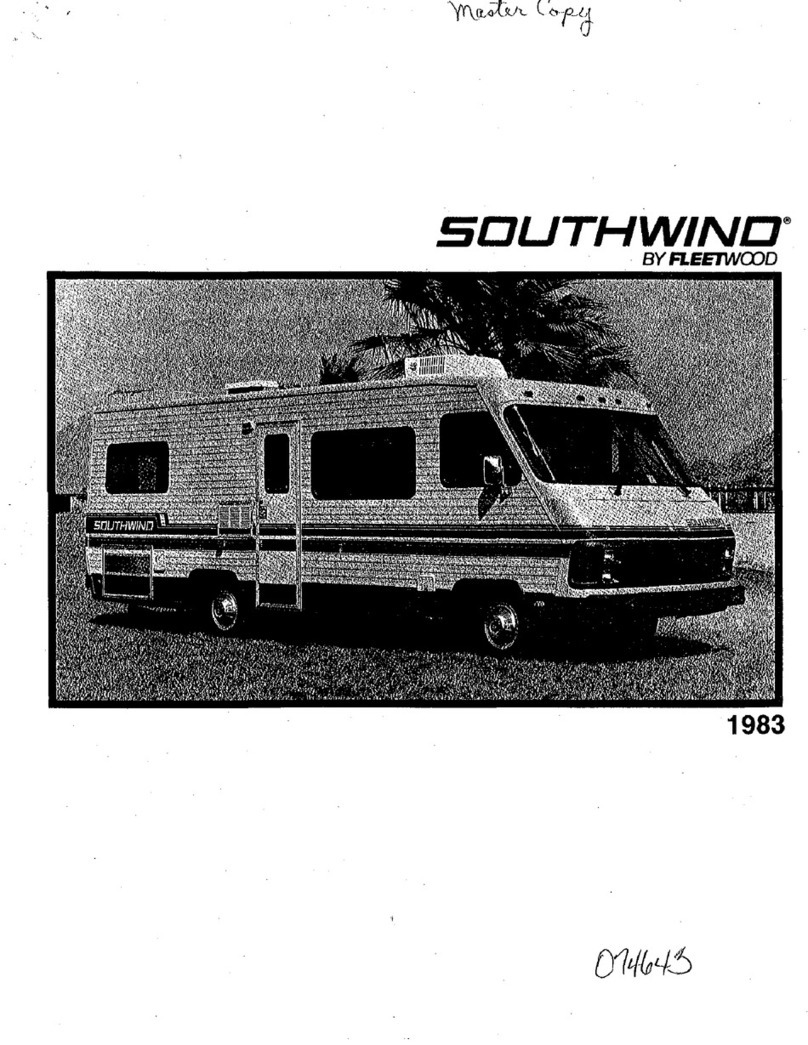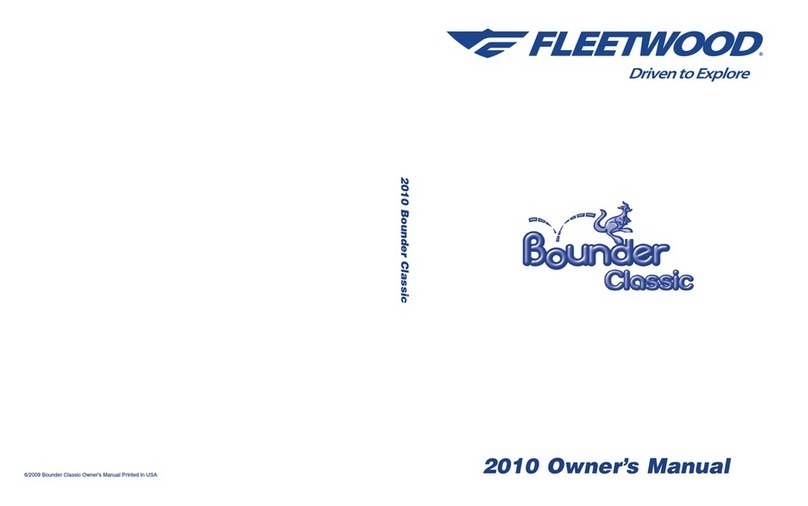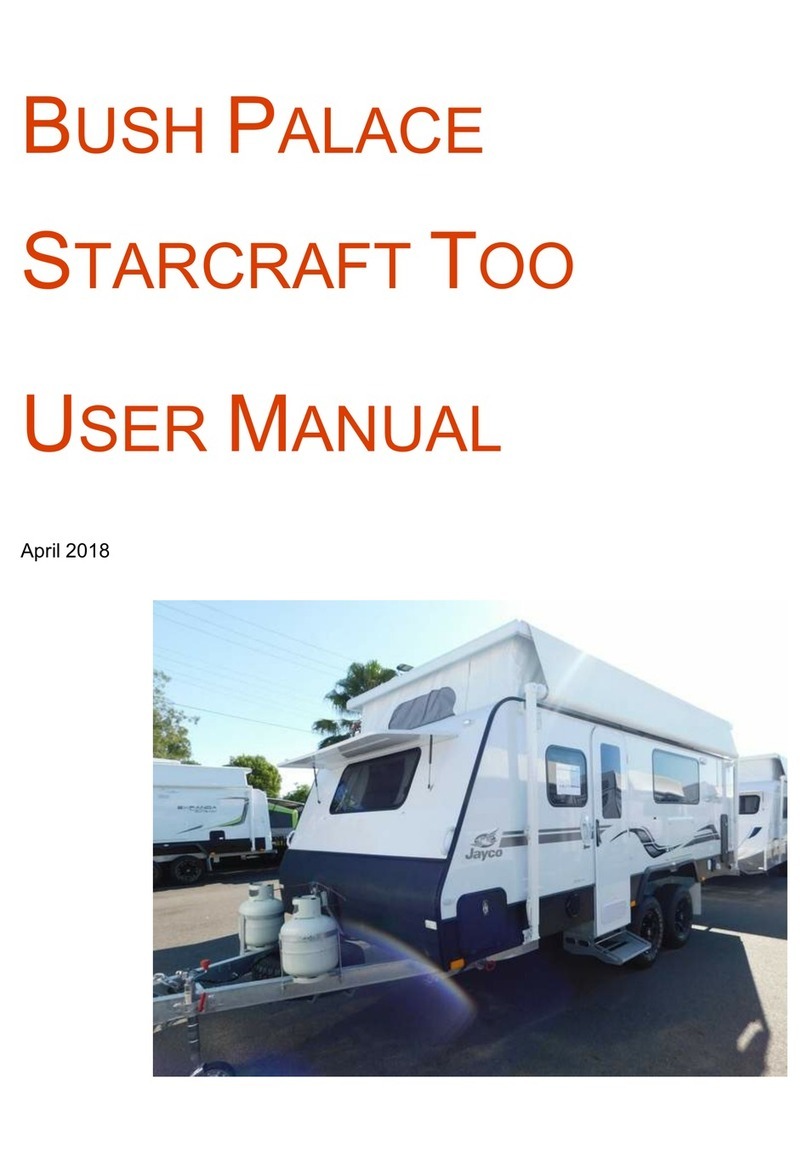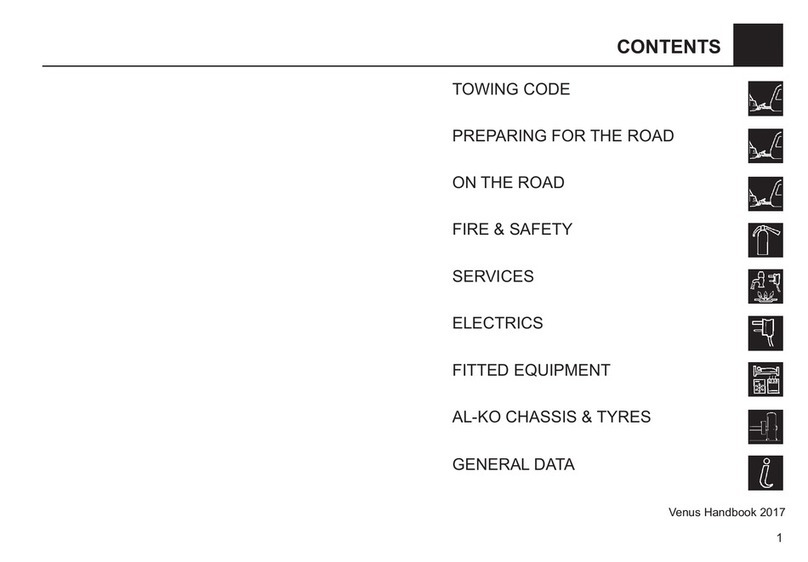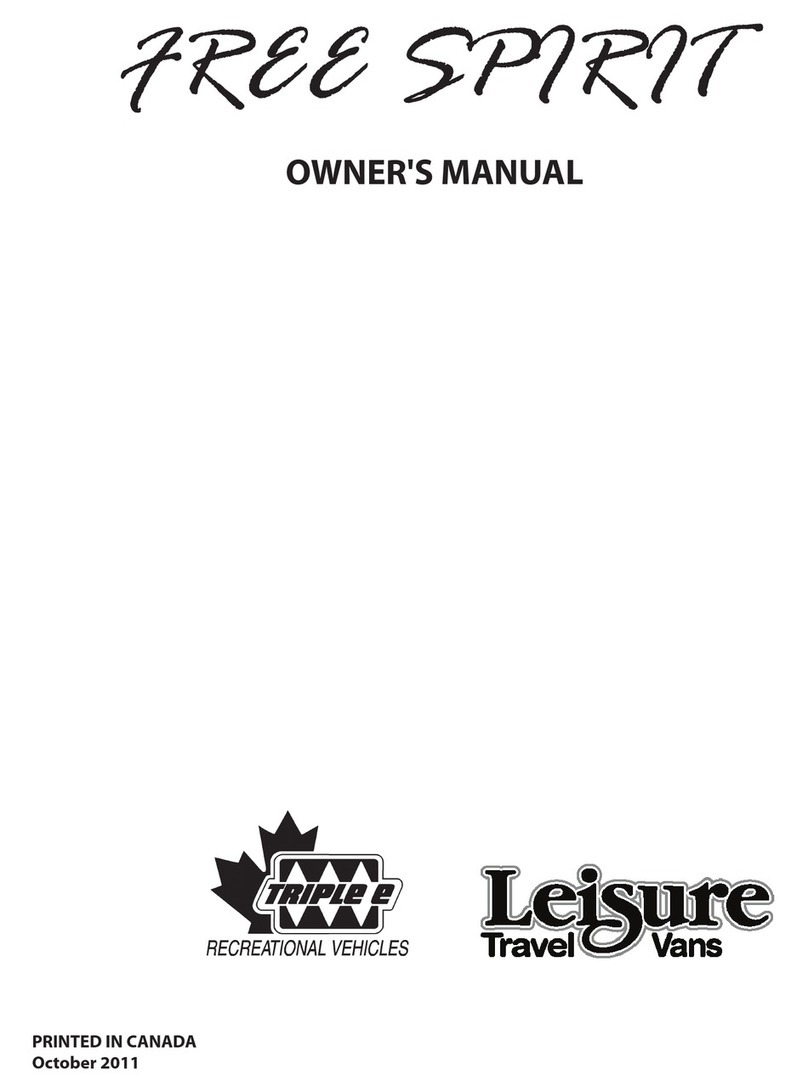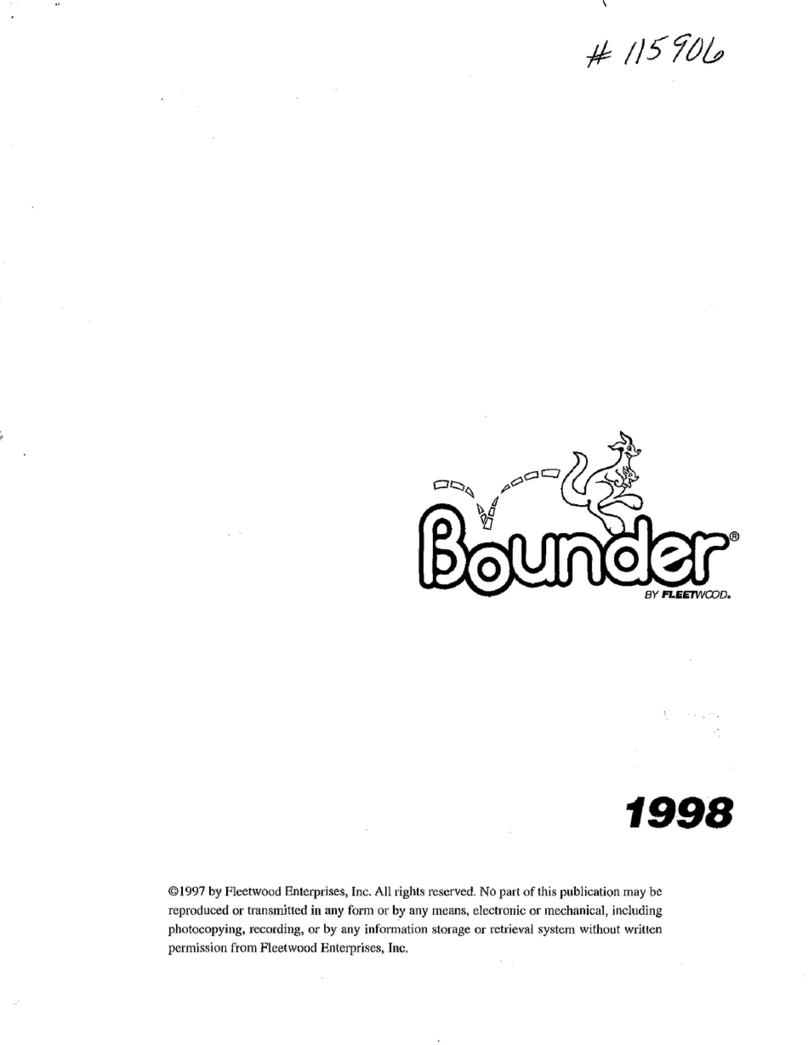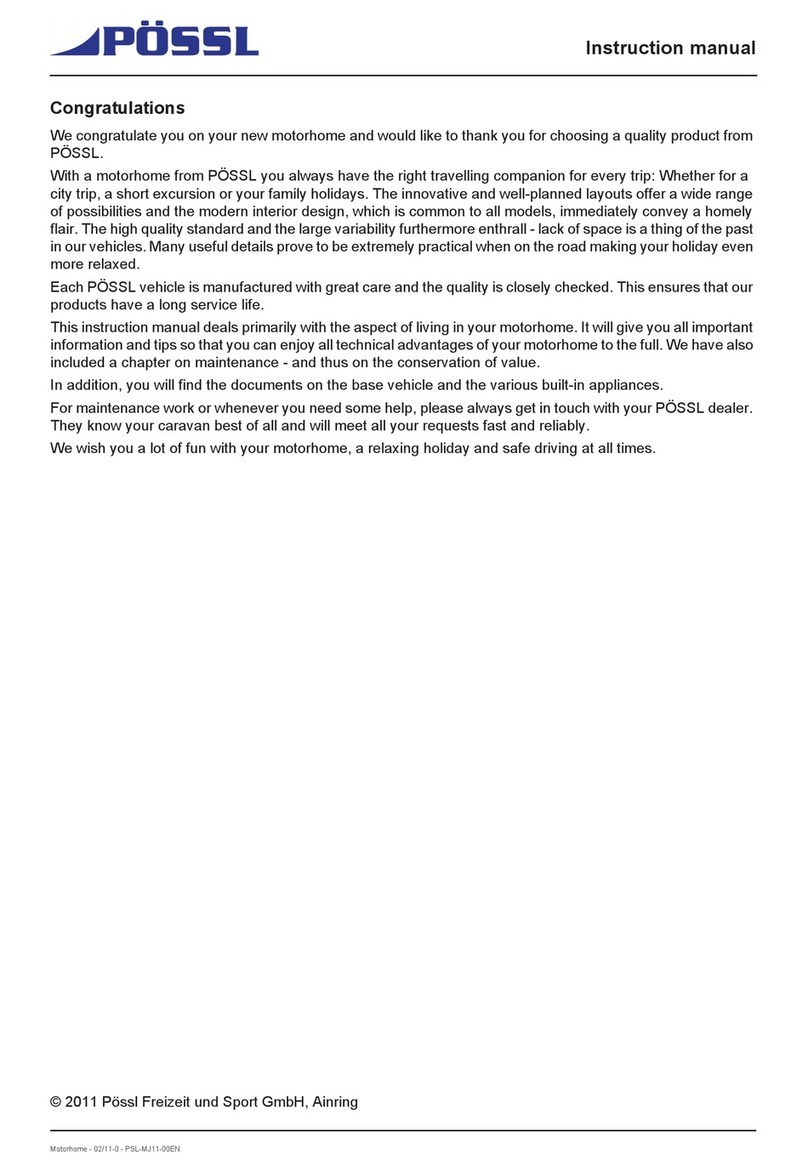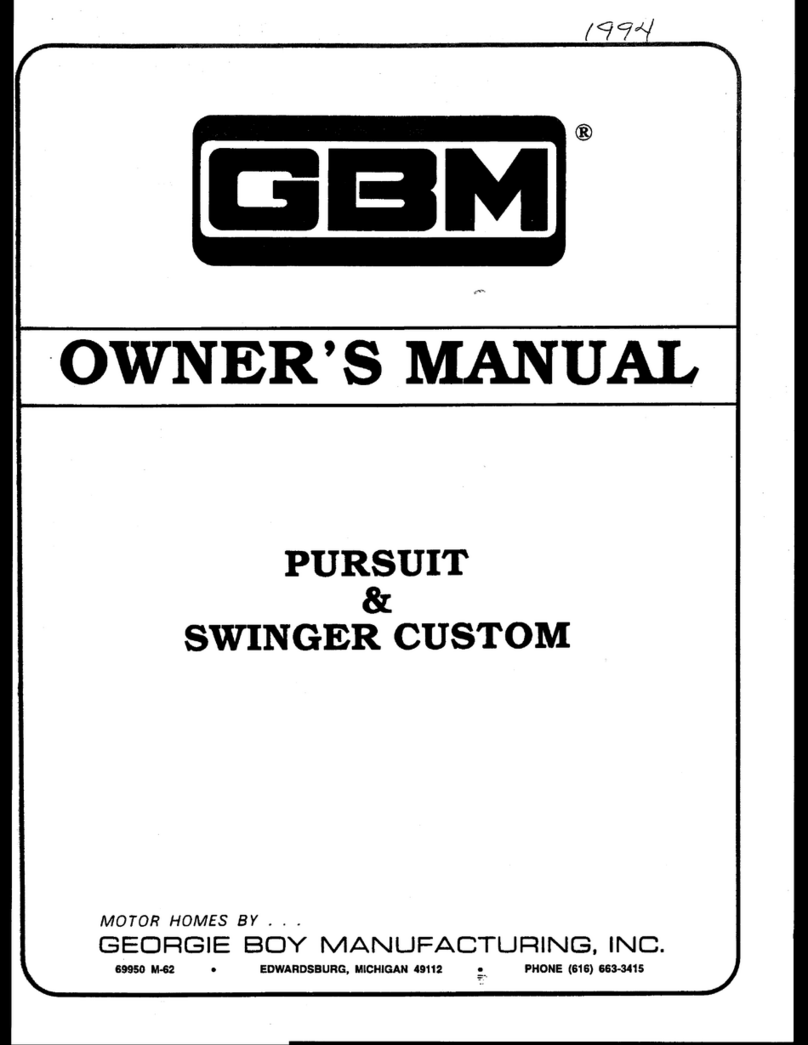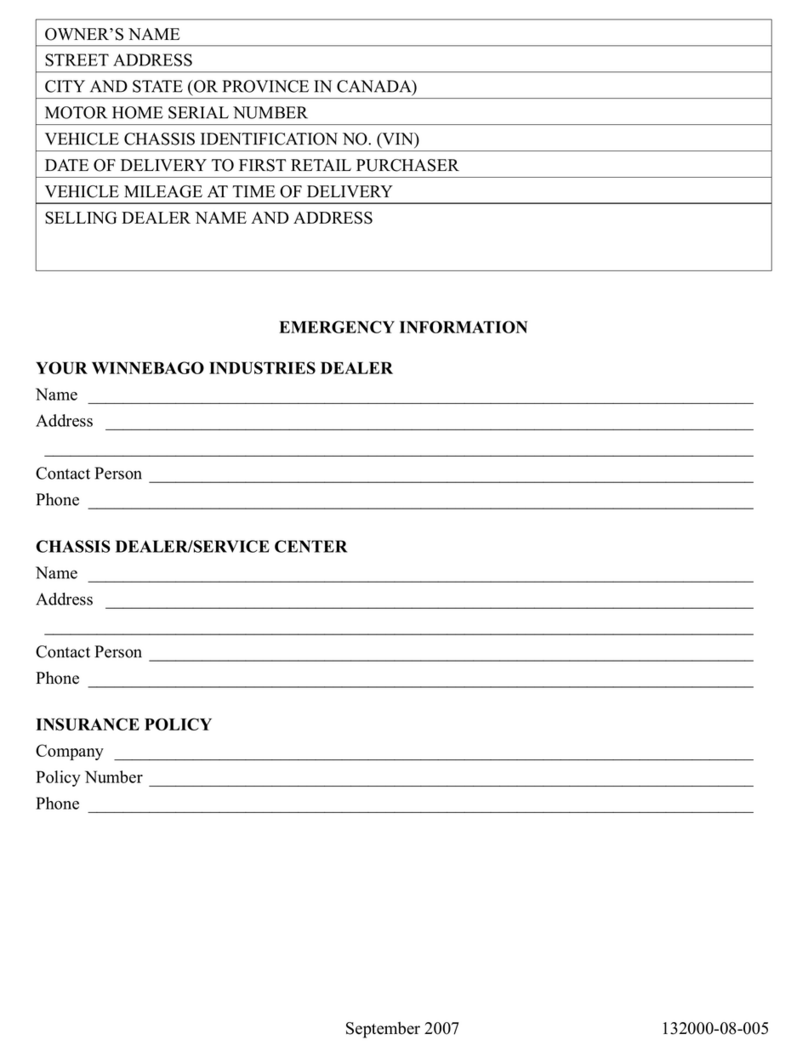
TABLE OF CONTENTS
WARRANTY Storage ................................................................16
NOTICES AND WARNINGS Exterior Compartments ......................................16
Interior Storage ..................................................16
Introduction
............................::............•..•........•..... 1 Interior & Furnishings .........................................17
Warranties .............................................................1 Dinette Conversion ............................................17
Reporting Safety Defects.......................................2 Sofa/Lounge Conversion ...................................17
Owner's Information Package ...............................3 Folding Doors/Dividers.......................................17
Chassis & Vehicle Identification Information .........3 Interior Lighting ..................................................17
Driver's
Controls
......................................................4 Overhead Vents .................................................17
Monitor Panel ......................................................17
On
The
Road.............................................................7
Motor Home Loading .............................................7
Carrying Capacity
..
..............................................7
Loading Tips ........................................................8
Determining Your MotorHome Load ...................8
Weighing Your LoadedMotor Home....................8
Tires.....................................
::
................................9
Tire Inflation
...
......................................................9
Tire Replacement.................................................9
If
You GetA Flat Tire ...........................................9
Spare Tire Carrier ................................................9
Changing A Flat Tire
..
:......................:..................9
Towing A Vehicle ...................................................9
Seats And Seat Belts...........................................10
Driver/Passenger Seats .....................................10
Seat Belts...........................................................10
ChildRestraint ...................................................10
Effects of Long-Term Occupancy ........................18
Ventilation & Controlling Condensation ............. 18
Fire Safety ...........................................................19
Fire Safety Precautions......................................19
Smoke Detector.................................................19
Plumbing
Systems
................................................
21
Fresh Water System ............................................
21
City Water Connection .......................................
21
Filling The Water Tank.......................................
21
Water Pump .......................................................22
Water Filter ........................................................22
Troubleshooting The Fresh Wat!')r System ........22
Leaks .................................................................22
Sanitizing The Fresh Water System ..................22
Exterior Shower .................................................23
Water Filter System ...........................................23
Driving & Parking .................................................10
Fuel & Fuel Systems ...........................................
11
Fuel Fill ..............................................................
11
Fuel Types & Vapor Lock...................................
11
Waste Water System ...........................................23
Toilet ..................................................................23
Draining The Holding Tanks ..............................23
Holding Tank Care .............................................24
General Chassis Topics ......................................
11
Electrical
Systems
.................................................25
Variable Speed Engine Fan ...............................
11
Chassis Electrical System ...................................25
Exhaust System Heat ........................................12 Chassis Bulbs & Fuses ......................................25
Carbon Monoxide Safety Precautions ................. 12 12-Volt Coach System .........................................25
Carbon Monoxide Detector................................12 Battery Inspection & Care ..................................25
Emergency Towing ..............................................13 Battery Charging ................................................25
Attaching Accessories To Your Motor Homes ..... 13 Selecting A Replacement Battery ......................26
living
With
Your
Motor
Home
...............................15
Hydraulic Leveling System ..................................15
Manual Entry Steps .............................................15
Power Entry Steps ...............................................15
Entry Assist Handle .............................................15
Entry Doors & Screens ........................................15
Windows ..............................................................15
Emergency Exit Window
..
..................................15
Side Slider Windows
..
........................................15
Sun Visors ...........................................................16
Woven Wood Shades ..........................................16
120-Volt System ..................................................26
Power Converter................................................26
Ground Fault Interrupter
..
..................................26
Coach Fuses & Circuit Breakers .........................27
Generator ............................................................27
GeneratorFuel Supply.......................................27
GeneratorOperation
..
........................................27
GeneratorOperating Safety Precautions...........27
Electrical System Wiring ......................................28
LP
Gas
System
.......................................................29
LP Gas Safety Precautions ...............................
:.
29
System Components ...........................................30
